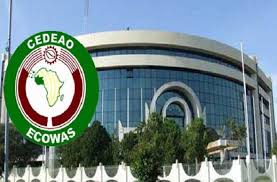Nigeria has contributed $710, 497,352, equivalent to 480, 355,205 West Africa Units of Account (UA) to the Economic Community of West African States (ECOWAS) Community Levy in the last 12 years.
The West Africa UA is the official nominal monetary unit of measure or currency used to represent the real value.
Available statistics on payment of the Community Levy by member-countries showed that between 2003 and 2015, the amount contributed by Nigeria was more than those of other member-countries put together.
According to the document relating to member-countries’ contributions presented by the ECOWAS Commission as part of the Status of the Community report during an Extra Ordinary Session of the ECOWAS Parliament, the 13 other countries, comprising Benin, Burkina Faso, Cabo Verde, Cote d’Ivoire, Guinea, Guinea Bissau, Gambia, Liberia, Mali, Niger, Senegal Sierra Leone and Togo, contributed a cumulative amount of $697. 947 million.
A breakdown of the contributions on member-country basis indicated that Guinea Bissau contributed the least amount of $3.107 million while The Gambia followed with $11. 171 million. Cabo Verde contributed $12.879 million; Sierra Leone contributed $19. 632 million; Liberia, $29.988 million; Guinea, $31.101 million; and Niger, $37.788 million.
Other countries’ contributions are Togo, $48. 961 million; Cote d’Ivoire, $54. 173 million; Benin Republic, $76. 147 million; Mali, $93. 538 million; Burkina Faso, $105. 278 million; Senegal, $174.177 million; and Ghana, $327. 976 million.
According to the statistics, the budget for each financial year is met by the member states through their contributions to the Community Levy, a 0.5 per cent tax imposed on goods from non-ECOWAS countries. The national customs administrations of member states are responsible for “assessment and collection” of the levy and daily record “accounts of amounts received”.
Despite Nigeria’s huge financial contributions to the levy, the country’s attendance of the ECOWAS Parliament’s plenary sessions and other fora of the sub-regional body remained abysmally low.
According to official records, out of the 35 seats allocated to Nigeria in the Parliament, many of the representatives were usually absent during plenary.
For instance, at the plenary in May 2018, only four members out of Nigeria’s 35 representatives were present on the day the country presented its Country Report.
Similarly, during its recent ongoing Second Ordinary Session, less than 10 of Nigeria’s representatives were present for the aforementioned presentation.






